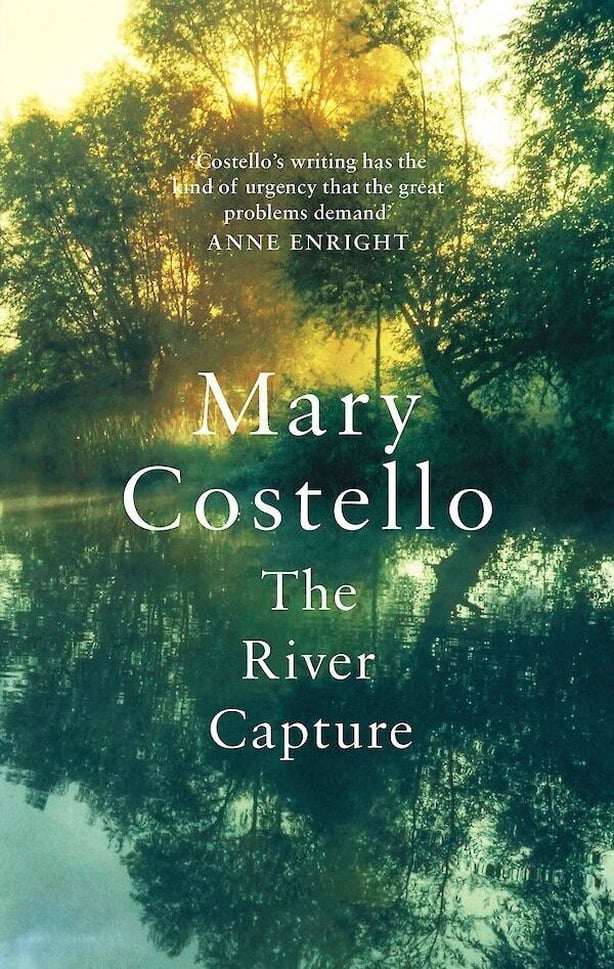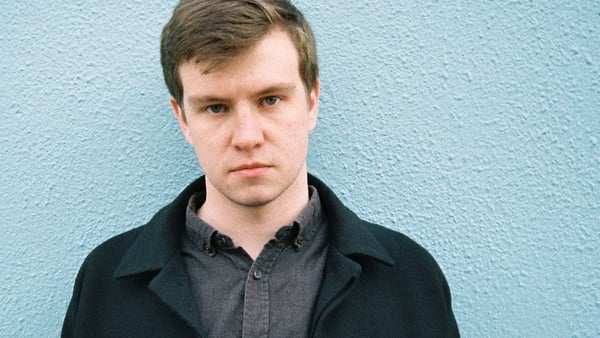To chime with Bloomsday, RTÉ Arts and Culture commissioned a series of short essays on walking out, the preferred way of the people of James Joyce's Ulysses to move through the city of Dublin where the novel is set.
Walking Out with Nora is the contribution of writer Mary Costello - read below.
'…She left for Dublin, got work as a chambermaid in Finn’s Hotel and six months later stepped out on the street and into James Joyce’s orbit. Or perhaps he stepped into hers. Does it matter? What matters is that a flare went up, an erotic charge…’
I find it impossible to walk south along the railings of Trinity College on Nassau St and not glance up at the lettering that spells ‘Finn’s Hotel’ on the redbrick building up ahead. Impossible not to call up the image of Nora Barnacle with her head of auburn hair striding along the street towards James Joyce on June 10th 1904. With his blue eyes and peaked cap, she thought him a Swedish sailor. Who came onto whom first? Nora was not shy – she had wit and charm and daring. In her native Galway she and a friend often dressed up in men’s clothes and played pranks around town. One night her gallivanting went too far, and her uncle meted out a severe punishment. Time to get out. She left for Dublin, got work as a chambermaid in Finn’s Hotel and six months later stepped out on the street and into James Joyce’s orbit.
Or perhaps he stepped into hers. Does it matter? What matters is that a flare went up, an erotic charge. They arranged to meet on June 14th, but Nora failed to show, triggering the first of many insecurities concerning Nora that would beset Joyce for years. Two days later, on Thursday 16th June, they met by arrangement on the corner of Merrion Square and – in what has become an archetype of walking out – walked out together for the first time, heading down to Ringsend and into history.
In Dublin in 1904 there were six mail deliveries on weekdays and one on Sundays. Throughout that summer, in numerous letters and in many meetings, Joyce and Nora opened up to each other. ‘No human being has ever stood so close to my soul as you stand…’ he wrote on August 29th. He recounted his past sexual exploits and his rejection of the Catholic church – both of which appalled and tested Nora. Still, she threw her lot in with his and on October 8th they hit out for Europe together. En route, in London and again in Paris, he left her waiting for hours on park benches while he went off to borrow money from friends.
Long after the carnal pleasures had dwindled and the painful memories of park benches had waned, they remained bound and loyal to each other.
What went through her mind in those endless hours of waiting? That he had abandoned her, cold and hungry and penniless, in a foreign city? That he was too ashamed of her to present her to his friends? When he finally appeared, I hope she gave him a good lash of her tongue.
In the years ahead, through poverty, adversity and marital strife, Nora stuck by Joyce. She may have felt out of her depth, intellectually, at the beginning, but she was never in awe of him, and he knew it. Her ways and her words are all over his work. He probed her heart and her mind and made immortal her past loves. With Nora, he was completely himself. She understood his vulnerabilities and his frailties, and constellated something in him that helped liberate his creative self. I hope there was something in it for her too.
Long after the carnal pleasures had dwindled and the painful memories of park benches had waned, they remained bound and loyal to each other. One evening in May 1922, Joyce’s eye doctor paid a visit to their Paris apartment. The doctor was astonished by the disorder – open trunks, clothes hanging everywhere, toiletries strewn on chairs and tables and mantlepiece. Joyce was sitting on the floor with a blanket around him, and facing him, in the same position, was Nora. A roasting tray with the carcass of a chicken lay on the floor between them, along with a half-empty bottle of wine. It is a scene I often return to: dusk is falling and the room is dark and they sit there for a long time after the doctor has left, sated and silent, locked in their own separate worlds, utterly themselves.

Mary Costello is the author of Academy Street and The China Factory. Her latest novel, The River Capture, pays homage to James Joyce.
Compiled by Clíodhna Ní Anluain

